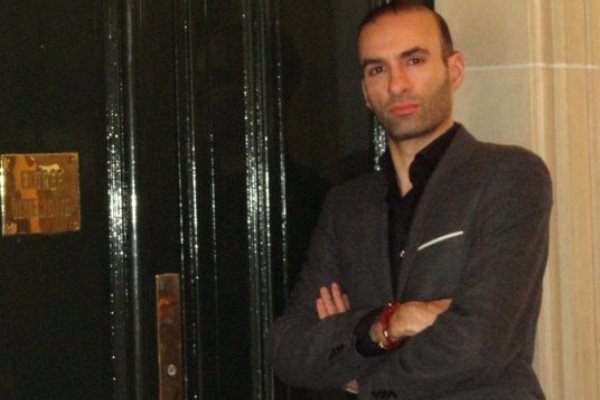Very likely KSA will have to sign the additional protocol: Adib-Moghaddam

TEHRAN - Professor Arshin Adib-Moghaddam, Chair of the Centre for Iranian Studies at the London Middle East Institute believes “it is very likely that Saudi Arabia will have to sign the additional protocol and forego nuclear enrichment on its own territory.”
Professor in Global Thought and Comparative Philosophies and Chair of the Centre for Iranian Studies at the London Middle East Institute, also adds that “Saudi Arabia and the United States must be aware that any concession in terms of enrichment and reprocessing plutonium will strengthen Iran's hand in the future.”
Here is the full text of the interview:
Q: After few years, U.S. administration announced will nuclear agreement with Riyadh. Why U.S. convinced to restart negotiation for nuclear agreement?
A: When I was first interviewed by Tehran Times about the Presidency of Donald Trump I tried to describe his approach as "transactional" and "tactical". The Trump administration follows capital flows and it does not have a strategic vision in world politics. The reinforcement of ties with Saudi Arabia including the nuclear agreement must be seen from this prism. There is no strategic agenda behind it; it is a business deal. For the United States, Saudi Arabia has been a reliable business partner for decades now. Even if Saudi Arabia under the leadership of Mohammad Bin Salman has acted largely independently from U.S. dictates, it still serves what the Trump administration considers to be America's national interests. The nuclear agreement is a natural outgrowth of this relationship which is cultivated around money, above anything else. Someone like Trump appreciates this capital-driven rationale.
Q: The Kingdom’s desire in its nuclear pan are enriching uranium and reprocessing plutonium. Will U.S. accommodate the Riyadh in these issues?
A: It will be very difficult to accommodate Saudi Arabia on these requests, not least because of the global anti-proliferation regime. The UAE had to sign the additional protocol of the IAEA and forego domestic uranium enrichment and the reprocessing of spent fuel. In addition, the case of Iran has made it that much more difficult for other countries to be entirely autonomous in their nuclear energy infrastructure. Saudi Arabia and the United States must be aware that any concession in terms of enrichment and reprocessing plutonium will strengthen Iran's hand in the future. Even in the current dangerous international climate, hypocrites may become hostage to fortune.
Q: Some argue that if U.S. do not cooperate with Saudi in its nuclear program, Russia and China may do it and this led to reducing American nuclear influence in the region. What is your opinion?
A: We are living in a multipolar world order. Undoubtedly, the United States is not the only game in town anymore. Russia and China have emerged as important focal points in this new international system. While it is unlikely that Saudi Arabia would rely on China and Russia for their nuclear supply, the emergence of these powers in West Asia and North Africa has given regional states more opportunities to bargain. The most important factor in world politics is the relative decline of U.S. power in the last decade.
Q: Which model for Saudi’s nuclear plan are likely, JCPOA or U.S. agreement with United Arab Emirates?
A: In the end, it is very likely that Saudi Arabia will have to sign the additional protocol and forego nuclear enrichment on its own territory. It is pivotal in this new age of nuclearisation of the region, that regional states forge a security architecture that emphasises cooperation. Foreign Minister Zarif made constructive suggestions in this regard. But as indicated in several previous interviews, Iran's ambassadorial infrastructure lacks the diplomatic stamina, effectiveness and perhaps even willingness to translate such important initiatives into viable policies. As opposed to countries such as Saudi Arabia, Qatar or even Israel, Iran lacks a global PR strategy.
Leave a Comment